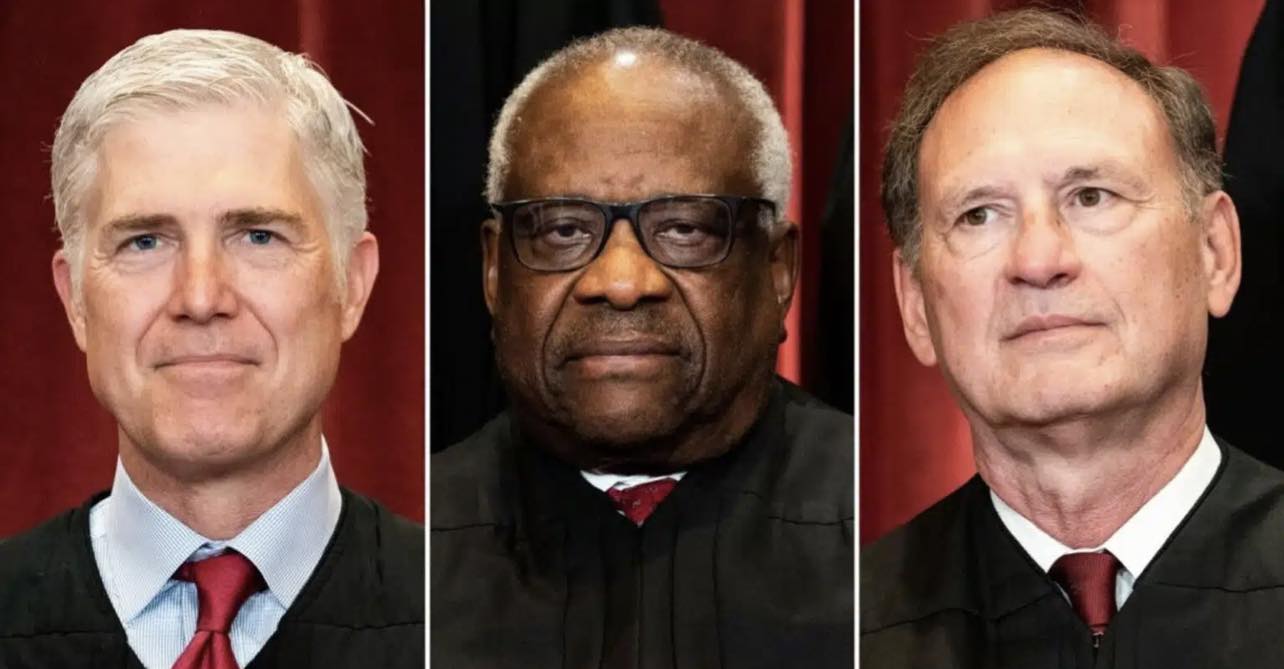The Biden administration begged the U.S. Supreme Court with an urgent request to stop a decision that would have rendered all national federal “ghost gun” regulations invalid.
Last year, Biden announced a crackdown on “ghost guns,” or firearms that are sold as do-it-yourself kits. However, there have been numerous legal challenges to the new Bureau of Alcohol, Tobacco, Firearms, and Explosives regulation.
Late last month, a federal judge in Texas, who was appointed by Republicans, ruled that the regulation was unconstitutional and ordered its nationwide revocation
The 5th U.S. Circuit Court of Appeals has since narrowed the decision to only invalidate parts of the rule, but the Justice Department urged the Supreme Court to suspend the entire decision while the case is still pending.
Two provisions are up for debate before the Supreme Court: The first makes it clear that certain parts kits are included in the federal definition of a “firearm,” and the second defines “frame or receiver” to include disassembled parts that are easily convertible into a working firearm.
The rule extends to the new covered parts of the federal regulations on serial numbers, record-keeping, background checks, and other matters. The ATF’s expanded definitions, however, were deemed to go beyond the purview of federal gun laws by the federal judge in Texas.
Gun rights advocates have been given a week to respond to the administration’s request after conservative Justice Samuel Alito, who handles emergency requests from the 5th Circuit, ordered a pause. The order does not represent the high court’s ultimate decision, The Hill reported.
“The district court’s universal vacatur is irreparably harming the public and the government by reopening the floodgates to the tide of untraceable ghost guns flowing into our Nation’s communities,” the Justice Department wrote in its request.
“Once those guns are sold, the damage is done: Some will already be in the hands of criminals and other prohibited persons — and when they are inevitably used in crimes, they are untraceable.”
Biden’s administration claimed that the number of “ghost guns” submitted to the ATF for tracing jumped from about 1,600 in 2017 to more than 19,000 in 2021. They also criticized the lower court’s ruling’s reach, arguing that it was improper to prohibit the provisions across the board.
The rule is being contested by two gun owners, two advocacy groups, and five companies that produce or distribute firearms. This case is one of many about ghost guns that are currently being heard in the courts. The plaintiffs had until Wednesday to respond to the administration’s request per Alito’s order.
“We’re elated that the Fifth Circuit has seen through ATF’s unpersuasive arguments and has determined that ATF failed to show it is likely to win on appeal,” said Cody J. Wisniewski, an attorney at Firearms Policy Coalition, one of the groups challenging the rule.
“ATF lost at the district court and has now lost its first bite at the Fifth Circuit; we look forward to continuing to win against ATF’s unlawful and unconstitutional gun control regime,” he added.
“Every speaker of English would recognize that a tax on sales of ‘bookshelves’ applies to IKEA when it sells boxes of parts and the tools and instructions for assembling them into bookshelves,” the Justice Department wrote. “The court’s insistence on treating guns differently contradicts ordinary usage and makes a mockery of Congress’s careful regulatory scheme.”
The administration asked the Supreme Court to either take up the case on the merits and schedule arguments for this fall or block the district court’s decision.
The 5th U.S. Circuit Court of Appeals, which has already scheduled oral arguments in the case for Sept. 7, would not be involved in the lawsuit if the latter option were chosen.

